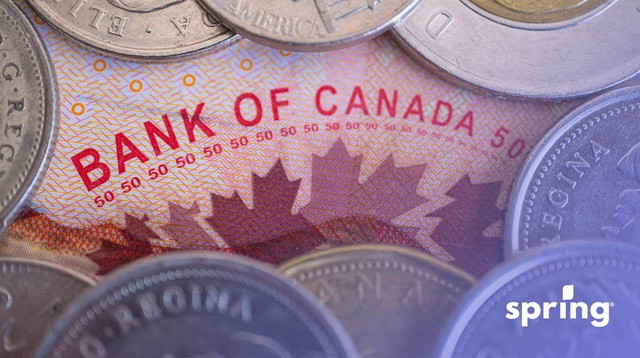Universal Basic Income in Canada isn’t currently offered. That said, they have done some experiments with UBIs in the past, including the Ontario Basic Income Pilot Project that began in 2016. However, Canada does offer assistance to those who have a lower income threshold to help them make ends meet.
How Universal Basic Income Works
The idea behind a universal basic income is that everyone receives some sort of income. With a UBI, the intention is that everyone will receive the same amount whether they’re employed or not. The idea behind them is that everyone can afford their basic needs.
In UBI proposals, the idea is to give recipients monthly income. In order to receive the money, you may need to meet a few conditions, but they will likely be minor conditions. It’s important to remember, though, that every country will have its own approach to UBIs and choose how to distribute them. There are two main approaches that countries should consider.
UBI
The first approach is the traditional UBi approach. This one involves every citizen receiving the same amount of money. It’s important to keep in mind, though, that with this approach, those who are in a higher income bracket could have to return the funds when they file their taxes. It could also be that they just pay higher taxes on the funds. It all depends on how the country chooses to structure that.
Guaranteed Basic Income
This second approach is based on earned income. Those who have lower incomes will receive the most funds. The more money you make annually, the less you’ll receive from the guaranteed basic income program. There is also an income cutoff where you won’t receive any funds at all. The idea behind this is to have a guaranteed livable basic income.
Countries That Have Universal Basic Income
There are actually quite a few countries that have implemented a universal basic income. Some of these countries implemented them for a short period of time, while others are still implemented today. One of the first countries to implement a UBI was Iran. They started this in 2010 and sent a monthly cheque to all of their citizens. They aren’t the only ones, though. Some of these other countries are doing something similar.
Norway
The system that currently exists in Norway is the closest to a UBI system. In order to receive the benefits, those who qualify must look for employment, follow the law, participate in elections and pay taxes. Not everyone receives the benefit either. It’s given to those who are in need of an income and don’t have a current employment status.
One of the main reasons that Norway has implemented this benefit is because they’re a welfare state. Even though the benefits aren’t available to everyone, they ensure all of their citizens are able to access healthcare, education and income, giving them the best opportunities for success.
Finland
While Finland doesn’t currently offer a UBI, they did experiment with it in 2016. They randomly chose 2,000 unemployed citizens and gave them a monthly benefit. It didn’t require constant paperwork like other benefits and was quite successful.
Brazil
In Brazil, certain areas offer a universal basic income. Specifically, Santo Antonio do Pinhal has implemented one of the first true systems on UBI. In this town, all of the residents get a portion of the city’s tax revenue. The only stipulation is that they have to live there for at least 5 years to qualify. In the Quatinga region, there is a UBI pilot program that has greatly improved the quality of life in the area. It’s been around since 2008.
United States
The US has attempted a UBI system multiple times. There are also many smaller programs throughout different states. The most notable is the Alaska Permanent Fund. This program gives residents a portion of the oil and gas revenue to each of its citizens. They’ve been doing this since 1982, and the portion given to residents is usually somewhere between $1,000 and $2,000 per year. It recently made a comeback in 2020, being part of former presidential candidate Andrew Yang’s campaign.
Bill C-223 in Canada
While Canada doesn’t currently have a Universal Basic Income, they’re taking the steps to potentially start one. This is outlined in private members Bill C-223, National Framework for a Guaranteed Liveable Basic Income Act, which was introduced in 2016 by the liberal party.
This bill would provide those who are eligible to work in Canada to receive a basic income supplement, also known as income support. It would be available to those over the age of 17, temporary workers, refugees, and permanent residents. It isn’t a true Universal Basic Income program, though; it’s actually a guaranteed livable income program.
Unlike the UBI, which would be available to all Canadians, the guaranteed income supplement would be available to those who fall within the low-income threshold. It would provide them with a monthly amount to help them cover the cost of basic needs.
The difference between Bill C-223 and current support programs is that Canadians wouldn’t have to go through social services for such a program. You could be eligible whether you’re in the labour market or not, and you could potentially receive more than current social assistance programs. The amount would also be intended to work alongside your working income.
While this bill hasn’t been passed yet, it is under consideration in the Standing Senate Committee on National Finance. Until it’s been passed, though, we won’t know the full realm of what’s included in bill C-223 and who would benefit from it. That said, it’s supposed to help reduce poverty in the country and provide more Canadians with a better quality of life.
Guaranteed Income Supplement (GIS) in Canada
Currently, Canada does have a Guaranteed Income Supplement, but it’s only available to those who are 65 and older and fall under the low-income threshold. Specifically, it’s available to low-income seniors who collect Old Age Security.
These are the requirements you need to meet in order to qualify for GIS in Canada.
- You need to be 65 years old or older.
- You must live in Canada.
- You must receive OAS (Old Age Security).
- You must have an income under $22,056 if you’re single, widowed or divorced.
If you have a spouse or common-law partner, you must have a combined income below $29,136. This is if they collect a full OAS pension as well. If you and your spouse’s combined income is below $52,848 and they don’t receive an OAS pension, you are also eligible. You’re also eligible if your spouse also receives the allowance and your combined income is below $40,800.
Programs That Supplement Income in Canada
If you aren’t a senior citizen, there are other programs in Canada that can help you make ends meet. There are federal tax credits like the ones listed below, but there are also provincial programs such as the Ontario Disability Support Program from the Ontario government. However, no matter which program you apply for, you must be part of the Canadian tax system to get approved.
Canada Workers Benefit
The Canada Workers Benefit is a refundable tax credit available to low-income working Canadians. They also offer a disability supplement. The amounts you could receive depend on you and your situation.
For single individuals, if your total annual income is under $24,975, you could receive the maximum amount of $1,518. As a family with an income under $28,494, you could receive the maximum amount of $2,616 per month. Once your income exceeds these amounts, your payments are reduced until you hit the income threshold. The income threshold for single individuals is $35,095 and $45,934 for families. The CWB disability supplement allows for a larger threshold.
Canada Child Benefit
The Canada Child Benefit offers funds to parents of children under the age of 18. The amount you receive for each child is based on their age and if you have full or partial custody. Essentially, though, this is a tax-free benefit for Canadians with children who have a low to modest income. This is just a federal benefit; there are also provincial benefits that have their own requirements.
If you qualify for the maximum CCB amount, you could receive up to $7,787 annually for each child under the age of 6. This works out to around $648.91 per month per child. For children between the ages of 7 and 18, the maximum amount you can receive is $6,570 per child. This works out to $547.50 per month per child.
GST/HST Credit
In Canada, taxpayers who earn a low income can receive a GST/HST credit. This is a tax-free amount that’s paid out four times per year. There are some stipulations that you need to meet in order to qualify, though.
In order to qualify, you must be 18 years of age and a Canadian resident for tax purposes the month prior to and the start of the month that the benefit is paid. You must also meet the income requirements.
Single individuals must be making under $54,704 annually in order to qualify. Families of four must have an income below $72,744 annually. The amounts you receive are based on your annual income, but these are the amounts up until June 2025.
- $519 as a single person
- $680 if you’re married or have a common-law partner
- $179 for each child under 19
Canada Dental Benefit
The most recent benefit that was made available to Canadians through the Canada Affordability Plan is the Canada Dental Benefit. This was available to families who didn’t have dental coverage and fell within the income threshold. How it worked was you submit receipts for your child’s dental work, and you could receive a portion of it back as a tax-free benefit. You could get up to two payments per child, and the amounts are $260, $390 or $650. While this benefit no longer exists, there is the Canadian Dental Care Plan.
The Canadian Dental Care Plan is currently open to those who are age 65 or older, children under 18, and those who qualify for the disability tax credit. It should open up to the rest of Canada soon.
Employment Insurance
In Canada, those who are unemployed or who can’t earn income due to no fault of their own can collect benefits until they’re able to return to work. The types of benefits that you could collect include:
- Regular benefits
- Sickness benefits
- Caregiver benefits
- Maternity benefits
- Parental benefits
The maximum amount that you can receive for each of these benefits is $668 weekly; however, there is a maximum number of weeks that you’re able to receive these benefits. That maximum is different for each benefit you collect.
Canada Disability Benefit
Another social support program that is being offered in Canada is the Canada Disability Benefit. This benefit starts in June 2025 and is intended to provide direct financial support to those between 18 and 64 with disabilities. Like many of the other programs, this one is also administered by Service Canada.
In order to qualify for this program you must also be approved for the disability tax credit and have filed your 2024 income tax return. You must also be a Canadian resident for income tax purposes. You must also be one of the following:
- A Canadian Citizen
- A Permanent Resident
- A Protected Person
- A temporary resident living in Canada for the last 18 months
- An individual registered (or entitled to be) under the Indian Act
Health Care
Unlike many other countries in the world, Canada offers universal health care. This means that if you live in Canada and have citizenship, then your healthcare costs are covered. You will still have to purchase prescriptions unless you have additional benefits. Dental also isn’t covered, but with the new Canadian Dental Care Plan, you could be eligible for coverage.
How a UBI Would Affect Canadians
The idea behind having a UBI in Canada is that it would allow Canadians more freedom when searching for a job. Having that guaranteed income would also help a lot of people leave bad life situations and give them the opportunity to start over. It would also limit the need for programs like the Canada Emergency Response Benefits, where many Canadians were unable to work.
One type of basic income program already implemented by the parliamentary budget office is the Ontario pilot program. It’s also followed by McMaster University. This program would increase the income of pilot participants in the labour force to a standard basic amount. However, this program would be more complicated to regulate since it’s based on income, which is also affected by hours worked.
The other problem with this program is that it only helps those who work, not those who are unable to work, which would affect its economic impact. Other programs that affect specific groups have been proposed in Prince Edward Island. Other provinces have created expert panels to explore the idea of universal basic incomes.
If a UBI does come into effect in Canada, it will be the first national framework and will likely be available to those 17 and older, as well as temporary workers, permanent residents, and refugee claimants. This would offer income security not only to those who are low-income but also to the middle class and everyone else, which would increase the well-being of Canadians.
Basic income advocates argue that a basic income would not only hold economic benefits but would also be instrumental in reducing poverty. Having a basic income would also help Canadian businesses because many Canadians would have more disposable income, which would have more than a modest impact.
With a UBI, though, you also have to consider where the funds would come from and the net cost. LIkely, income taxes would increase and amounts given to other programs would decrease. Even with that in mind, the government still keeps looking at new reports, and sending them to the parliamentary budget office, as to how a UBI can help the Canadian economy.
Final Thoughts
While the answer to the question “Is there Universal Basic Income in Canada” is no, Bill C-223 has been brought forward by the federal government based on economic need. It could make it so a plan is implemented in Canada soon. Until then, different supplements and tax-free credits have been available to low- and modest-income Canadians.
These programs include the Canada Workers Benefit, Canada Child Benefit and the GST/HST tax credit. While these programs don’t substitute for a UBI, they do help Canadians make ends meet. That said, if Bill C-223 does come into effect, many more Canadians will be receiving the funds that they need to make ends meet.









